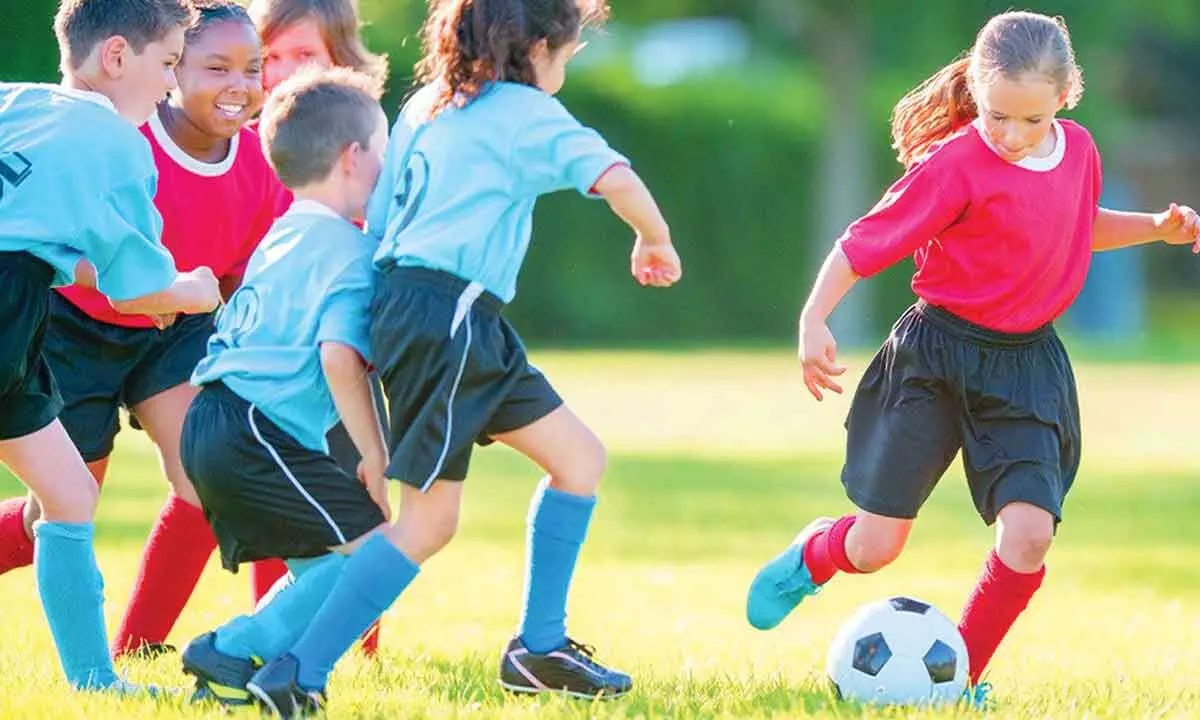Fostering sports talent through integrated curriculum in schools

By incorporating sports into education, we not only tap into a child’s inherent curiosity and energy but also foster discipline and teamwork. Sports serve as a unifying force, bringing kids together and instilling valuable life skills that extend beyond the playing field. Neglecting this vital aspect can result in a significant missed opportunity for holistic child development.
A The President’s Council on Sports, Fitness & Nutrition (PCSFN) Science Board study highlights that 73 per cent of parents see sports benefiting their child’s mental health, 88 per cent view it as beneficial to physical health, and 55per cent believe in its academic and career advantages. The study shows 80 per cent of parents recognize sports’ role in teaching discipline, teamwork, and dedication. Additionally, sport engagement in youth correlates improves education, leadership, and self-esteem, as per research by Barça Foundation and UNICEF in 2019. In schools, incorporating sports curriculum is instrumental in fostering and refining young sports talent.
The Young Hans spoke with Manjula B. She is the esteemed Vice President of Academics and Sports at Orchids The International School, Bangalore, where she adeptly oversees the planning and monitoring of both academic and athletic endeavors. With her exceptional leadership and dedication, she ensures a holistic development for students, fostering excellence in both intellectual and physical pursuits.
Excerpts from an interview
What are the key benefits that an integrated sports curriculum offers in terms of fostering talent and holistic development among students?
The fusion of sports and academics is imperative. Every sport inherently intertwines with various subjects, fostering a holistic understanding. By integrating these elements, we prevent learning from becoming tedious, ensuring students are actively engaged. Incorporating practical concepts when teaching measurement provides a tangible context for students, enhancing their comprehension, for example:Jumping and Throwing.
Similarly, elucidating the significance of speed, time, and distance in running not only refines athletic skills but also imparts valuable lessons in physics and mathematics. Failure to integrate subjects may result in partial learning, leaving students without a comprehensive grasp of the material. Thus, an interdisciplinary approach not only enriches education but also instills deeper and more lasting knowledge in students.
How does the integration of sports education impact students’ physical health, mental well-being, and their overall academic performance?
The exuberant energy and heightened interest levels of students make sports an invaluable outlet. Engaging in sports not only expands this abundant energy but also promotes a relaxed state of both - body and mind. This tranquility, in turn, contributes to increased interest and receptivity to other subjects.
Remarkably, incorporating sports has shown a positive correlation with academic performance. Students who may struggle in traditional academics have witnessed improvements in their scores when encouraged to embrace sports as a major subject. Initiating this motivation early on and fostering a culture of regular practice not only enhances physical well-being but also cultivates a harmonious balance between academic and athletic pursuits, nurturing a more holistic and successful educational experience.
What role does early exposure to sports within the curriculum play in shaping a student’s long-term discipline, teamwork, and dedication, both in sports and other aspects of life?
From the moment a child is born, their innate instinct to play, explore, and learn is evident in the rhythmic beating of legs and hands and the curious gaze into their surroundings. This natural inclination to play catalyzes self-driven learning, and as educators, it’s crucial to harness and nurture this intrinsic gift. Additionally, understanding children’s eating habits and the fact that they often feel hungry adds another layer to their development. Physical activities like sports not only provide an avenue for expending their boundless energy but also contribute to a healthier lifestyle, complementing their eating habits.
By incorporating sports into education, we not only tap into a child’s inherent curiosity and energy but also foster discipline and teamwork. Sports serve as a unifying force, bringing kids together and instilling valuable life skills that extend beyond the playing field. Neglecting this vital aspect can result in a significant missed opportunity for holistic child development.











